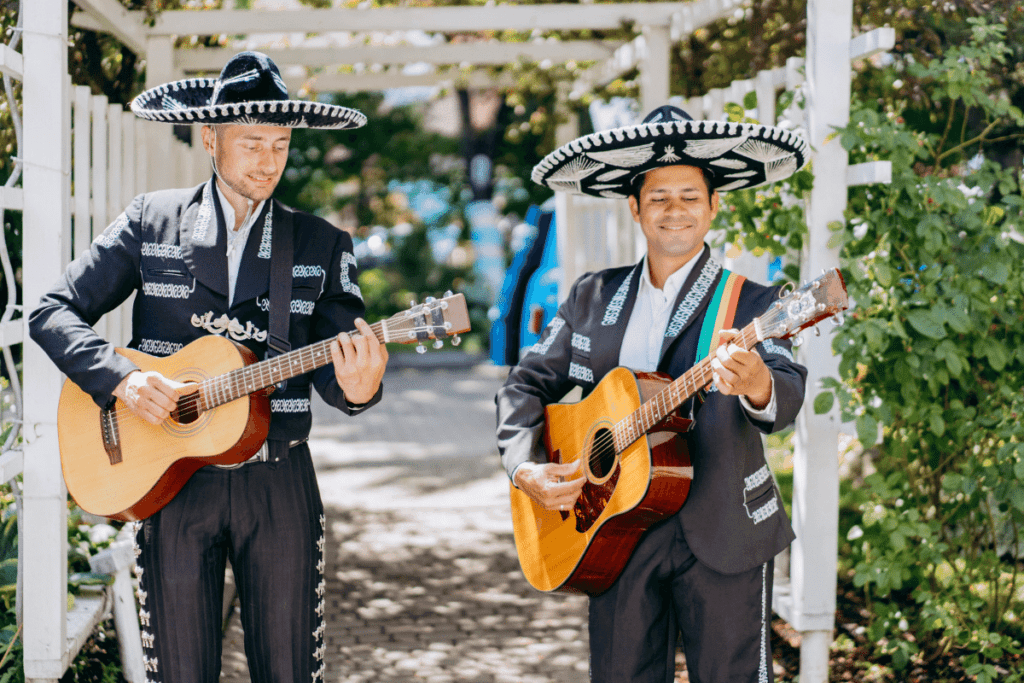
So you’re ready for your next international trip buuuuut you’re not sure where. (Check out these ten bucket list destinations for starters!) You’ve heard great things about our lovely neighbor to the south, Mexico, but high school Spanish class was sooooo long ago… Not to worry: The Travel Yogi has your back. In this segment of our foreign language series, we explore the Spanish language and the country of Mexico. And, we send you off with 10 fun Spanish phrases you can use the next time you head south of the border.
Spanish: What’s the Big Deal?
When it comes to learning a second language, it turns out Spanish really is “la bomba” (the best)! As the second most-spoken language in the world after Mandarin (English is third), Spanish is the official language of 21 countries. Not only will learning Spanish open up entire continents for your travels; it will also make you more marketable in the U.S. job market, as the United States has over 41 million native Spanish speakers, and the need for Spanish in business grows by the day. And—bonus—that means you can practice your español even at home!
Spanish is also one of the easiest languages for an English speaker to learn. This is because it’s a phonetic language, meaning that all vowel sounds and letters are pronounced consistently (unlike in English where “wind” can have different pronunciations depending on whether you’re “winding up a toy” or “blowing in the wind”). For this reason, Spanish is a great “gateway language” to learning other Romance languages, like French or Italian.
Intro To the Spanish-Speaking World: Mexico
Let’s take a peek at the country with the most Spanish speakers worldwide: Mexico. Mexico has over 120 million Spanish speakers—although Spanish is not actually Mexico’s official language. In fact, Mexico does not have an official language at all, instead recognizing Spanish and 68 other indigenous languages.
The Mexican people themselves are a product of these 68 different indigenous peoples and three centuries of Spanish colonization. Mexico is thought to have had human inhabitants since at least 8,000 BCE(!), making it one of the top ten most ancient civilizations.
The Olmec, Toltec, Teotihuacan, Zapotec, Mayan, and Aztec empires all lived within the boundaries of present-day Mexico at one time or another. The capital, Mexico City, was actually built by the Spanish on top of Tenochtitlan, the ancient Aztec city in the middle of a lake. (Check out the origin story… it’s pretty cool!)
The Mexican terrain reflects the diversity of its people, from high mountains and deep canyons to sweeping deserts and dense rainforests. Mexico is also known for its beautiful cenotes—natural pits or water-filled caves that were once used by the Mayan people as water sources. If you’re looking to explore a country with a rich, diverse culture, history, and land, look no further…
10 Fun Spanish Phrases That Mexicans Use Everyday
Now, the fun part: here are some fun Spanish phrases you’ll only hear on the streets of Mexico:
1. ¿Mande? (“Mahn-day”)
You may have learned “qué” in Spanish class as the word for “what,” but now you can sound like a true Mexican when you use “mande” instead. Mande (pronounced “mahn-day”) literally translates to “Give me an order,” and it comes from Mexico’s colonial past, when the local indigenous peoples were forced to take orders from Spanish conquistadors. Now, it’s the uniquely Mexican way of saying “Can you repeat that?” or “What’d you say?”
2. Chido
Chido is the Mexican word for “cool.” Here are some common ways to use it:
Está chido. | He is cool. |
Está chida. | She is cool. |
¡Qué chido! | Awesome! |
3. Güey (“Way”)
Güey is the Mexican word for “dude,” “man,” or “bro.” While it literally means “ox” or even “stupid person,” it’s now a term of endearment. You can throw it on the end of any sentence, such as:
¿Qué haces, güey? | What are you doing, man? |
¡Está bien chido, güey! | That’s so cool, dude! |
4. ¿Qué Ónda?
Ónda literally means “wave,” and “¿Qué ónda?” means “What’s up?” (Like “¿Qué pasa?” but cooler!)
5. ¡No Manches!
Although manchar literally means “to stain,” the expression “¡no manches!” is the Mexican way of saying “No way!”
6. ¡Órale!
Órale is a uniquely Mexican expression that is used in many different contexts. It can be used to express surprise, like saying “Wow!” but it can also be used to express agreement, or even to say “hurry up!”
P: ¿Quieres ir al super? R: Órale, vamos. | Q: Do you want to go to the supermarket? A: Sure, let’s go. |
¡Órale! Qué llegamos tarde. | Hurry up! We’re late. |
¡Órale! ¿Viste el amanecer? | Wow, did you see that sunrise? |
7. Pedo
You’ll hear the word pedo all the time in Mexico. The strange thing is, it literally means “fart.” Mexicans use this word for everything… Here are just a few examples:
Él está pedo. | He is drunk. |
la peda | the party |
el pedo | the problem |
No hay pedo. | It’s not a problem. |
Es buen pedo. | He’s a nice guy. |
8. Neta
When used as a noun, neta means “the truth.” When used as a question, it means “Really?” The word comes from the French word “net,” meaning “pure.”
¡No manches! ¿Es neta? | No way! For real? |
¡Dime la neta! | Tell me the truth! |
9. Ahorita
For all you Spanish buffs, you may recognize this word for its resemblance to the word ahora, meaning “now.” Ahorita is slightly different, and even native Spanish speakers quibble over its interpretation. Sometimes ahorita means right in this present moment. It could also mean “a little later” or “never.” Overall, if you ask someone a favor and they respond with “Ahorita,” the person is probably saying “When I get around to it.” The word’s versatility is completely cultural—and thus completely Mexican.
10. Sale (“Sah-lay”)
In Mexico, you’ll want to be sure to use sale (pronounced “sah-lay”). Sale—from the verb salir, to go out—is the uniquely Mexican way of saying okay, yeah, it’s a deal, I’m down, let’s go! Locals will understand you if you instead say dale (“dah-lay”) or vale (“vah-lay”), or even just “ok,” which Spanish speakers also use. But they will be super impressed if you answer with “¡Sale, güey!”
Have you ever wondered why the rapper Pitbull says “¡Dale!” in all his songs? “Dale”—from the verb dar, to give—is a word with countless uses and meanings, including “Alright!” “Let’s go!” or even just “Sure.” Every Spanish-speaking culture has their preferred word for this. In Spain, it’s “vale” (pronounced vah-lay”) from the verb valer, to be worth.
Use Your Fun Spanish Phrases On Your Next Adventure With The Travel Yogi
Ready for some Spanish practice? Join us on our next trip! We journey to Mérida, in the heart of the Yucatán peninsula, known for its culture, cuisine, beaches, and nature. You’ll explore the region’s rich cultural history, cycle to a cenote, eat ceviche on a secluded beach, explore untouristed Mayan ruins, traverse mangrove channels, and bookend each amazing day with a yoga session. This is the trip for adventurers who want to see authentic Mexico through local eyes and eats.
Spanish not your thing? (How about Icelandic??) We have plenty of other carefully-crafted yoga retreats for you to choose from all across the globe. ¡Órale!

